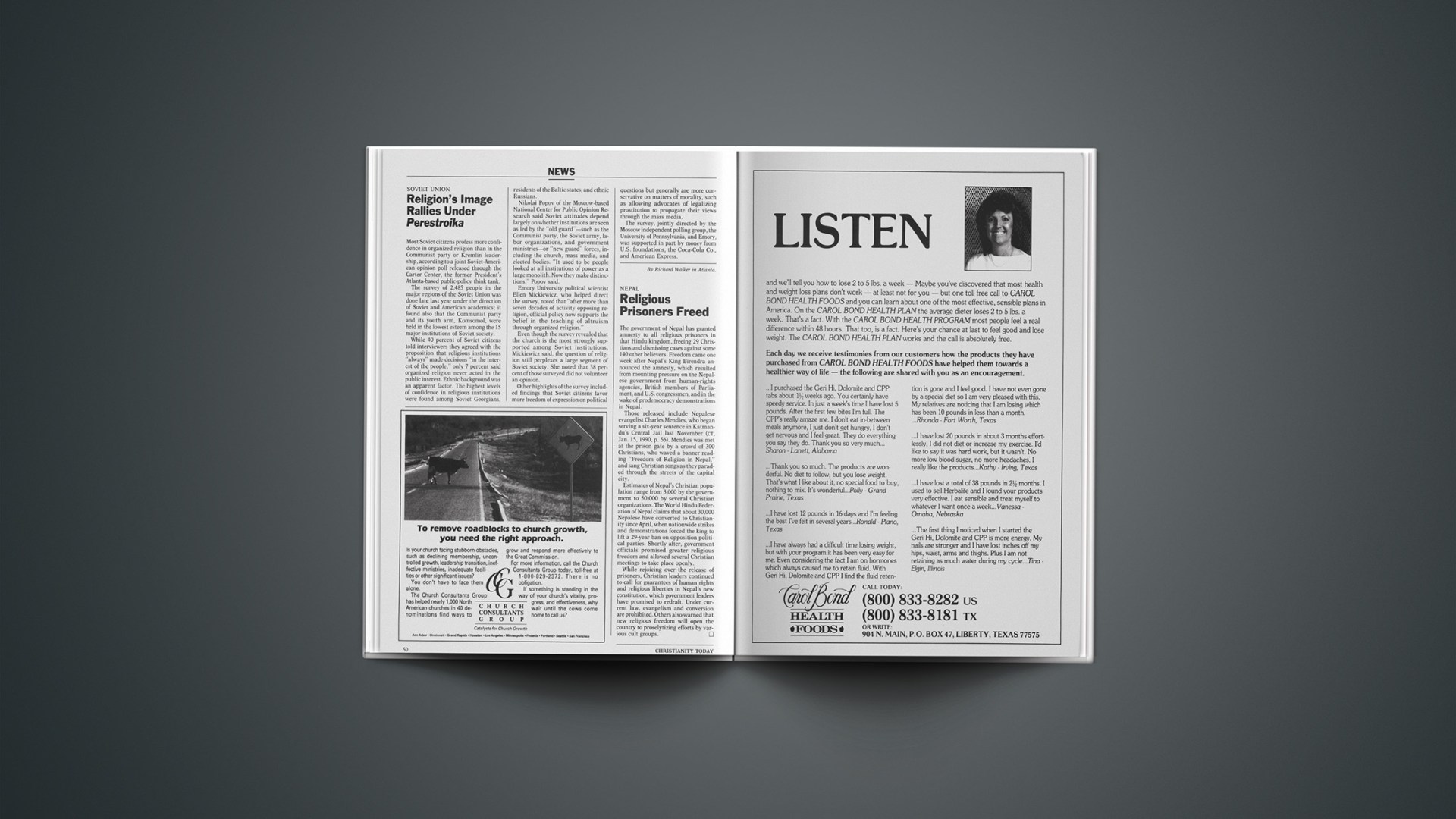Most Soviet citizens profess more confidence in organized religion than in the Communist party or Kremlin leadership, according to a joint Soviet-American opinion poll released through the Carter Center, the former President’s Atlanta-based public-policy think tank.
The survey of 2,485 people in the major regions of the Soviet Union was done late last year under the direction of Soviet and American academics; it found also that the Communist party and its youth arm, Komsomol, were held in the lowest esteem among the 15 major institutions of Soviet society.
While 40 percent of Soviet citizens told interviewers they agreed with the proposition that religious institutions “always” made decisions “in the interest of the people,” only 7 percent said organized religion never acted in the public interest. Ethnic background was an apparent factor. The highest levels of confidence in religious institutions were found among Soviet Georgians, residents of the Baltic states, and ethnic Russians.
Nikolai Popov of the Moscow-based National Center for Public Opinion Research said Soviet attitudes depend largely on whether institutions are seen as led by the “old guard”—such as the Communist party, the Soviet army, labor organizations, and government ministries—or “new guard” forces, including the church, mass media, and elected bodies. “It used to be people looked at all institutions of power as a large monolith. Now they make distinctions,” Popov said.
Emory University political scientist Ellen Mickiewicz, who helped direct the survey, noted that “after more than seven decades of activity opposing religion, official policy now supports the belief in the teaching of altruism through organized religion.”
Even though the survey revealed that the church is the most strongly supported among Soviet institutions, Mickiewicz said, the question of religion still perplexes a large segment of Soviet society. She noted that 38 percent of those surveyed did not volunteer an opinion.
Other highlights of the survey included findings that Soviet citizens favor more freedom of expression on political questions but generally are more conservative on matters of morality, such as allowing advocates of legalizing prostitution to propagate their views through the mass media.
The survey, jointly directed by the Moscow independent polling group, the University of Pennsylvania, and Emory, was supported in part by money from U.S. foundations, the Coca-Cola Co., and American Express.
By Richard Walker in Atlanta.










